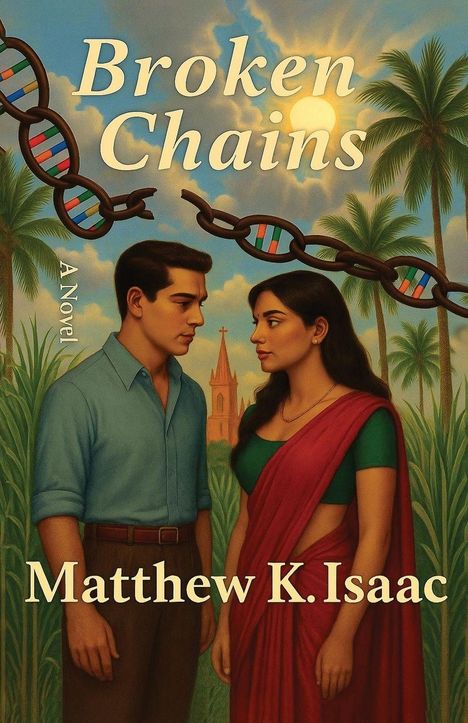Matthew K Isaac: Broken Chains, Kartoniert / Broschiert
Broken Chains
(soweit verfügbar beim Lieferanten)
- Verlag:
- Veritas Vincit Press, 11/2025
- Einband:
- Kartoniert / Broschiert
- Sprache:
- Englisch
- ISBN-13:
- 9798999860002
- Artikelnummer:
- 12492821
- Umfang:
- 296 Seiten
- Gewicht:
- 345 g
- Maße:
- 216 x 140 mm
- Stärke:
- 17 mm
- Erscheinungstermin:
- 10.11.2025
- Hinweis
-
Achtung: Artikel ist nicht in deutscher Sprache!
Klappentext
Broken Chains is a powerful historical love story about Sam, a Syrian Christian, and Devi, a Dalit woman (an Untouchable) from Kerala. Together, Sam and Devi defy India's entrenched caste and religious boundaries, social rejection, and public shame in pursuit of a "forbidden love" and inter-caste marriage. Their love lays bare the centuries-old caste system, its legacy of servitude and bigotry, and the religious narratives that have long been used to justify social injustice.
Fearing continued oppression, they migrate to the United States. There, Sam's groundbreaking research in evolutionary biology and genomics-particularly on the origins of the human species and the emergence of the caste system in India-exposes the "moral blindness" surrounding untouchability and bigotry. As a renowned evolutionary biologist, Sam writes a best-selling book that reveals the uncomfortable truths behind systemic caste oppression and racial injustice, earning him the Pulitzer Prize. Consequently, India bans both Sam's controversial book and his re-entry into the country.
Through Devi's existential struggles and her redemption through Sam's unconditional love, the novel explores existentialist philosophy-especially the belief that "existence precedes essence" and that humans create meaning in their own lives, controlling their own destiny, not by any teleology or predetermined caste, religion, or race. Yet the success of our collective destiny depends on the moral choices we make, echoing Kant's "categorical imperative."
"Broken Chains" is a tale of forbidden love and the fight against systemic oppression. I was immediately captivated by the first sentence of the novel. It was hard to put it down, and I learned a great deal about the foundations of caste superiority and societal ostracization in India. This book is a deeply moving narrative that critiques casteism, religious bigotry, and societal oppression while celebrating the transformative power of love, resilience, and truth. It is a poignant tale of two individuals who suffered religious bigotry, violence, and marginalization as they break free from the chains of tradition and prejudice, advocating for dignity, equality, and shared humanity. I would love to see this turn into a major Hollywood film." -Ms. Brenda Pickleman, Hollywood Actress, Chicago.
"Broken Chains is more than a love story or a political novel. It examines how freedom is defined, who bestows it, and its cost. The book boldly tackles religion, caste, patriarchy, and institutional power. It moved and disturbed me, reminding me that liberation is never complete. It should be read, debated, and, above all, taken seriously. I thoroughly enjoyed reading Broken Chains." -Dr. Henry D'Souza, Professor, University of Nebraska, Omaha.
"Isaac has fashioned a classic forbidden love story complete with fascinating character development, intriguing and insightful dialogue, and an examination of the impact of rigid cultural traditions on the attempt of two individuals from different backgrounds to forge a life together. Though set in a particular cultural context, this challenging and provocative work raises questions of universal importance such as class discrimination, religious arrogance and bigotry and the relationship between religion and morality as well as the intellectual and academic collision between religion and science."-Dr. Dale Lanigan, Professor Emeritus, Lourdes University, OH.
"Broken Chains is a profoundly moving novel that explores forbidden love against the backdrop of untouchability and religious bigotry, powerfully examining tensions between bigotry, faith, and science." -Dr. A. Pillai, Former Professor of Comparative Literature, NY.


